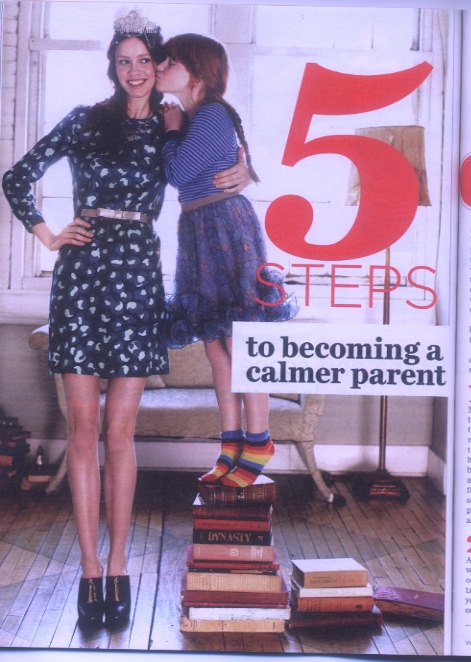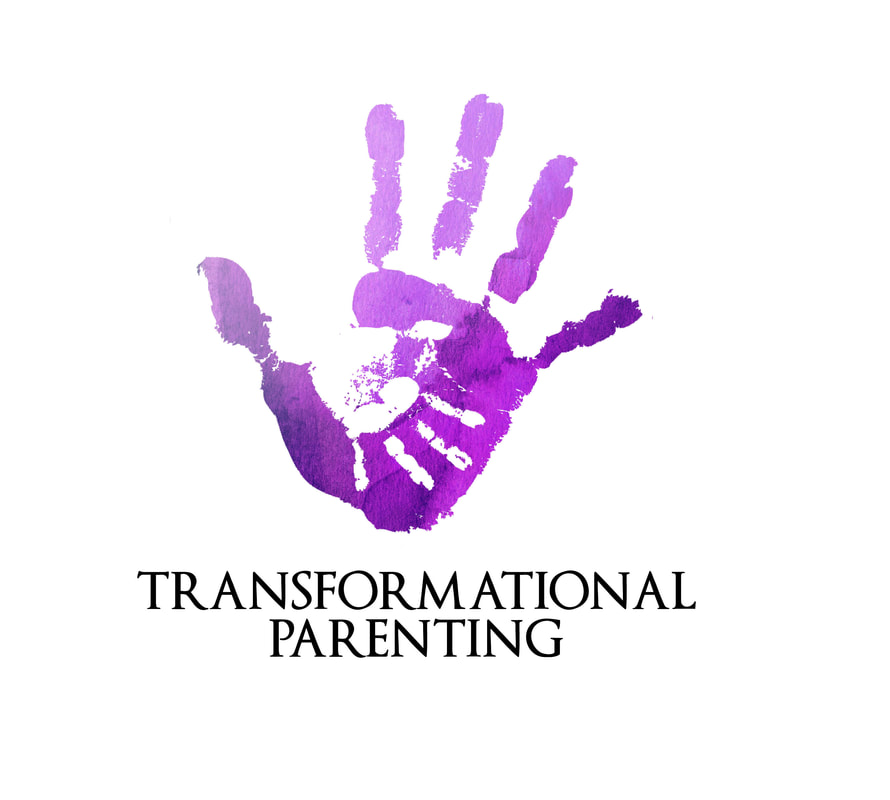
Karen Nel, of the Clicks Clubcard Magazine, interviews parenting coach, Mia Von Scha, about how to become a calmer parent.
Why are so many modern parents so stressed, and unable to remain calm when dealing with their children?
Our current economic climate, as well as the fast pace of modern life, means that in most families both parents are working, compared to the old model where the father was the bread winner and the mother raised the kids. This means that parents on the whole have less time to spend with their children and are having to do all the cooking, cleaning, shopping etc after hours or on the weekends which would traditionally have been family time. This in itself is not a problem per se, except that parents have allowed this "busy-ness" to creep into their minds as well. Even when parents are with their children, if they are really honest and observant, they will notice that they are elsewhere in their minds and not actually present with their kids. They are lost in the past and future internally – thinking about something that happened at work or planning tonight's dinner or worrying about finances etc. This is where the problem comes in when parents want to be calm with their kids. How can you be calm if you're not really there? The truth is that the past and future do not exist anywhere but in your mind. Only the present moment exists, and if you want to meet your kids where they are then that is where you need to be. And there is no problem in the present moment; there may be challenges to face, but not problems. All problems, and all suffering, come from our thoughts about the past and future.
2. What sort of behaviour does this result in (from the parents)?
If you are living in your head and not in the present moment, what this means is that you will resort to your own conditioning when dealing with your children. This is the reason that we "become our parents". In other words, you will simply act out whatever your own parents would have done in the situation, even if you've sworn that you would never do or say something that they said/did to you! In order to act any differently to what you were brought up, you need to be present enough to respond rather than reacting in any given situation.
3. Why is it important to remain calm in front of your children?
This is probably THE most important thing that you can do as a parent. Our children learn by observation – everything that they are learning about what is possible in the world, how to behave in certain situations, whether they are valuable as a human being, what is ok and not ok, they are learning by watching and imitating you. This is not to say that you should never express emotion in front of your kids – I do believe that this is important too – if they are able to see you fall apart (lose your temper or break down in tears etc) and see you come out on the other side of this, they also learn how to cope with strong emotions and that they are normal and they will be ok in the end. However, if you are constantly losing your temper over little things then this will become your kids coping style as well. You need to model for them appropriate problem solving skills, not sweating the small stuff, being present and responding rather than reacting.
4. Do you have any practical tips on how to remain calm during a heated moment with your children?
I think that most parents are aware of sending their kids for a "time-out" when the kids are starting to lose the plot – what I would like to see introduced into more homes is a time-out for the parents! What we do in our home, is we have a "thinking chair" - a calm place for taking a breath and getting yourself back to the moment, and this is used by all of us, not just the kids. I do feel that this changes the dynamic from a "naughty corner" where you are being punished (as usually only the kids ever go there) to a place for everyone to go to just collect themselves and calm down. So, in a heated moment, I may say to my kids "I'm really losing it right now – I am taking myself to the thinking chair for 10 minutes and we'll discuss this once I've calmed down". This also takes the emphasis off the child as being responsible for your emotions and makes you the rightful owner of your internal state. Take a moment or two, calm down, and then respond to the situation. Often you will find that once you've calmed down the solution is clearly evident or the problem has already resolved itself in your absence.
5. What steps can parents take in advance to prepare for stressful parenting moments?
I highly recommend that all parents do some kind of relaxation practice on a daily basis. Something as simple as watching your breathing, meditation, yoga, prayer or just a daily time-out can do wonders for your internal state. If you do find that you are trapped in your mind in either negative thoughts about the past or anxious thoughts about the future, get some help. A few sessions with a life coach or counsellor can do wonders in terms of bringing you back to the present, putting things in perspective, and helping you to stay calm yourself and to raise calm children.
Our current economic climate, as well as the fast pace of modern life, means that in most families both parents are working, compared to the old model where the father was the bread winner and the mother raised the kids. This means that parents on the whole have less time to spend with their children and are having to do all the cooking, cleaning, shopping etc after hours or on the weekends which would traditionally have been family time. This in itself is not a problem per se, except that parents have allowed this "busy-ness" to creep into their minds as well. Even when parents are with their children, if they are really honest and observant, they will notice that they are elsewhere in their minds and not actually present with their kids. They are lost in the past and future internally – thinking about something that happened at work or planning tonight's dinner or worrying about finances etc. This is where the problem comes in when parents want to be calm with their kids. How can you be calm if you're not really there? The truth is that the past and future do not exist anywhere but in your mind. Only the present moment exists, and if you want to meet your kids where they are then that is where you need to be. And there is no problem in the present moment; there may be challenges to face, but not problems. All problems, and all suffering, come from our thoughts about the past and future.
2. What sort of behaviour does this result in (from the parents)?
If you are living in your head and not in the present moment, what this means is that you will resort to your own conditioning when dealing with your children. This is the reason that we "become our parents". In other words, you will simply act out whatever your own parents would have done in the situation, even if you've sworn that you would never do or say something that they said/did to you! In order to act any differently to what you were brought up, you need to be present enough to respond rather than reacting in any given situation.
3. Why is it important to remain calm in front of your children?
This is probably THE most important thing that you can do as a parent. Our children learn by observation – everything that they are learning about what is possible in the world, how to behave in certain situations, whether they are valuable as a human being, what is ok and not ok, they are learning by watching and imitating you. This is not to say that you should never express emotion in front of your kids – I do believe that this is important too – if they are able to see you fall apart (lose your temper or break down in tears etc) and see you come out on the other side of this, they also learn how to cope with strong emotions and that they are normal and they will be ok in the end. However, if you are constantly losing your temper over little things then this will become your kids coping style as well. You need to model for them appropriate problem solving skills, not sweating the small stuff, being present and responding rather than reacting.
4. Do you have any practical tips on how to remain calm during a heated moment with your children?
I think that most parents are aware of sending their kids for a "time-out" when the kids are starting to lose the plot – what I would like to see introduced into more homes is a time-out for the parents! What we do in our home, is we have a "thinking chair" - a calm place for taking a breath and getting yourself back to the moment, and this is used by all of us, not just the kids. I do feel that this changes the dynamic from a "naughty corner" where you are being punished (as usually only the kids ever go there) to a place for everyone to go to just collect themselves and calm down. So, in a heated moment, I may say to my kids "I'm really losing it right now – I am taking myself to the thinking chair for 10 minutes and we'll discuss this once I've calmed down". This also takes the emphasis off the child as being responsible for your emotions and makes you the rightful owner of your internal state. Take a moment or two, calm down, and then respond to the situation. Often you will find that once you've calmed down the solution is clearly evident or the problem has already resolved itself in your absence.
5. What steps can parents take in advance to prepare for stressful parenting moments?
I highly recommend that all parents do some kind of relaxation practice on a daily basis. Something as simple as watching your breathing, meditation, yoga, prayer or just a daily time-out can do wonders for your internal state. If you do find that you are trapped in your mind in either negative thoughts about the past or anxious thoughts about the future, get some help. A few sessions with a life coach or counsellor can do wonders in terms of bringing you back to the present, putting things in perspective, and helping you to stay calm yourself and to raise calm children.


